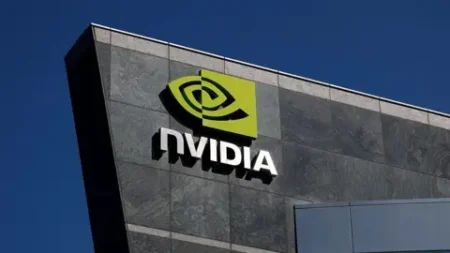In a significant development for Meta Platforms, Inc., investors might find their concerns about the company’s considerable investments in artificial intelligence (AI) alleviated following an impressive earnings report released on Wednesday. This earnings report has been characterized by analysts, including a senior analyst from Investing.com, as a testament to the notion that AI is evolving beyond mere speculation and is emerging as a legitimate driver of revenue for the tech giant. Meta, the parent company of Facebook and Instagram, has been heavily investing in AI infrastructure and talent, and these recent financial results could indicate that such investments are beginning to yield substantial returns.
The company’s reported earnings stood at $7.14 per share on a revenue of $47.5 billion for the quarter ending June 30. Notably, this figure represents a remarkable 38% increase in earnings per share when compared to the previous year. Moreover, these earnings exceeded Wall Street’s expectations, which had predicted a per-share earning of $5.88. Following the announcement of these strong results, Meta’s shares surged by more than 9% in after-hours trading, and the company’s stock has appreciated by 16% since the beginning of the current year.
In addition to its impressive earnings, Meta has projected that revenue for the current quarter will fall between $47.5 billion and $50.5 billion, again exceeding analysts’ forecasts. This optimistic outlook forms a part of a broader narrative about the company’s robust business performance, which has enabled it to invest heavily in AI initiatives. During a conference call with analysts, the company emphasized that the improved performance this quarter can be attributed, in part, to AI driving the effectiveness of its core advertising business.
CEO Mark Zuckerberg has also been vocal about his vision for AI, releasing a video and blog post wherein he shared his aspirations for a personal AI superintelligence that empowers individuals, enhancing productivity while allowing them more time for creativity and connection. This reflects a deep-seated belief at Meta in the transformative power of AI and its potential to redefine the company’s future.
Watermarking Meta’s strategic ambitions, the company has aggressively sought to recruit top-tier AI talent, luring key figures from competitors such as OpenAI, Google, and Apple. This recruitment strategy is part of the formation of the new Meta Superintelligence Labs, with a significant budget allocated towards building massive AI data centers. Notably, one of these new hires, Shengjia Zhao, co-creator of ChatGPT, was appointed the chief scientist for the team, underlining the quality of talent being attracted to the company.
Meta’s endeavors in AI place it among other leading tech entities such as OpenAI and Google, all striving for advancements in AI to possibly reach “superintelligence.” This term refers to a theoretical stage where AI outperforms human intelligence across all domains of knowledge work. Achieving such a milestone could revolutionize the economy and generate new business opportunities, providing competitive advantages for those leveraging this technology effectively.
For Zuckerberg, the imperative to excel in AI comes with added pressure. Having previously undertaken unsuccessful pivots toward the metaverse, he sees the transformation of Meta from merely a social media company to a leader in AI and advanced computing as critical. The vast investments in AI infrastructure are expected to bear fruit, especially as the company improves its data centers and prepares its smart glasses business, which is intricately tied to AI capabilities. Contrary to its ambitions, Meta is reportedly catching up to competitors after facing delays in rolling out its new Llama 4 AI model, adding another dimension of urgency to its quest for AI supremacy.
In a projection that illustrates his commitment to innovation, Zuckerberg remarked that he foresees smart glasses emerging as the “main computing device” of the AI era. While this aligns with the overarching goal of advancing toward new computing frontiers, the road ahead is marked with challenges. Despite the aggressive spending lavished on talent and infrastructure, Meta’s capital expenditures for the third quarter amounted to $17 billion—remarkably close to Wall Street’s estimated $16.48 billion. While the company tightened, but did not elevate, its full-year capital expenditure guidance, shareholders received a clearer perspective on Meta’s approach to its expansive investment plans.
In conclusion, Meta’s compelling earnings report, alongside its ambitious AI strategy and heightened focus on talent acquisition, reflect a determined effort by the company to transform itself into a leader in artificial intelligence. As they navigate challenges and strive to maintain an edge in this competitive landscape, the eyes of investors, analysts, and the tech community will undoubtedly remain fixed on Meta’s next moves.











